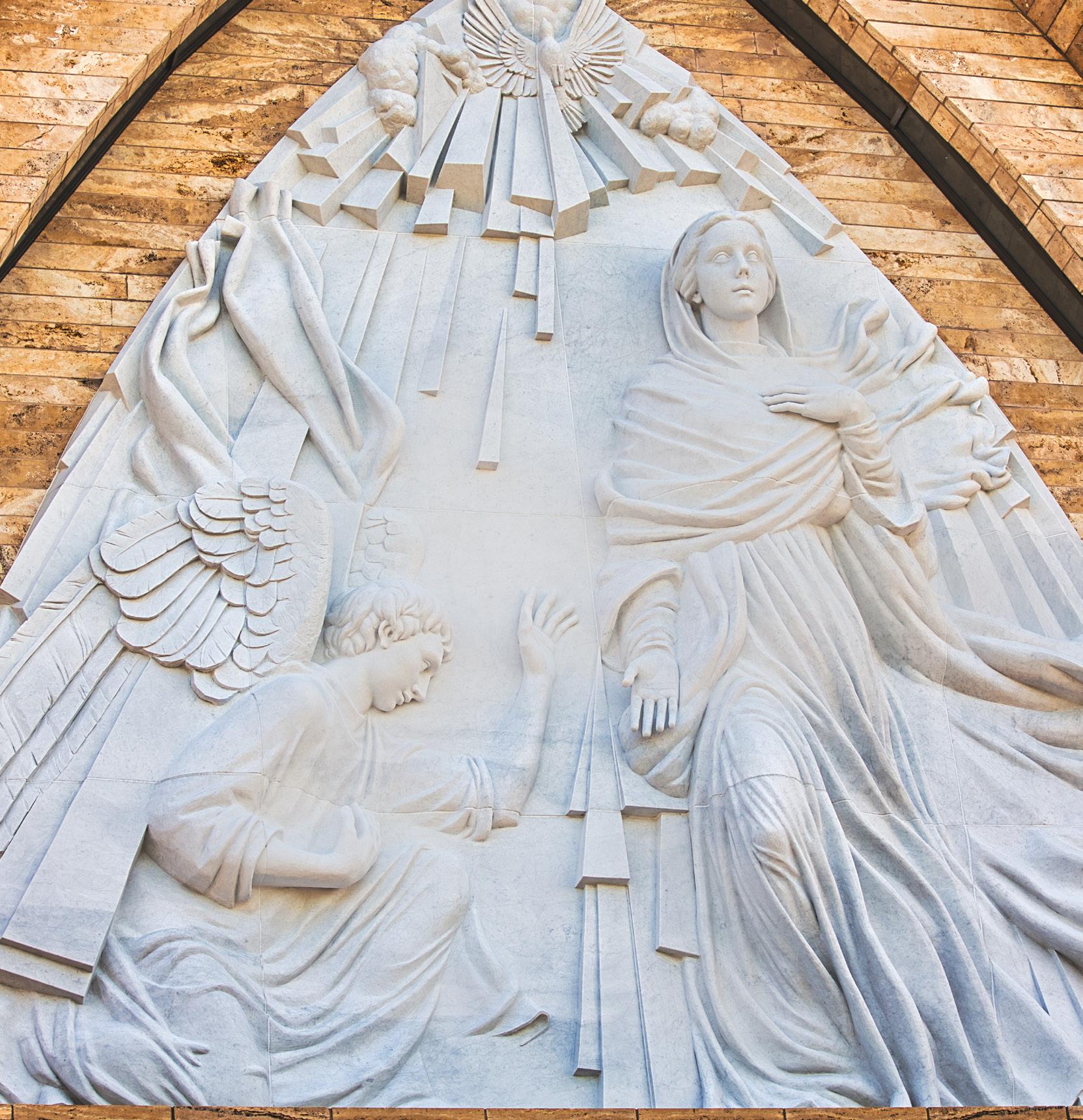
4 minute read
THE POWER OF OUR NAME
THE POWER OF OUR NAME
AVE MARIA IS A SUMMATION AND MODEL FOR EVERY STUDENT
Naming something has always been a powerful act. God brought all the animals to Adam to see what he would call them (Gn 2:19). God changed Abram’s name to Abraham, meaning father of the multitudes. Jacob’s name was changed to Israel, and he became the head of a nation. Simon was changed to Peter, and he became the head of the Church. Fast forward a few thousand years and we instinctively still want to name things. However, names weren’t previously chosen simply for cadence or recall; they signified something deeper about the essence of the person. This is certainly true with the name Ave Maria.
While many recognize the term Ave Maria is Latin for Hail Mary, others mistakenly think this was the angel Gabriel’s greeting to Mary in Luke’s gospel. Although it is a fair summary of the encounter, it is not Gabriel’s words verbatim. Gabriel did not say “Hail, Mary,” he said, “Hail, Full of Grace.”
This is not insignificant.
The term “Hail” is often followed by a title. For example, Hail Caesar, indicating royal authority.
Even that bastion of Catholic thought, Wikipedia, says Caesar is a title of imperial character.
‘It is derived from the cognomen of Julius Caesar, the Roman dictator, and later changed from a familial name to a title adopted by Roman Emperors.’
Another powerful example is when Jesus was enduring the passion. Recall the guards mocking Jesus by putting a crown of thorns on his head and saying, “All Hail, King of the Jews.” (Mark 15:18) Again, Hail, followed by a royal title.
In the case of Mary, it’s “Hail, Full of Grace,” which is astonishing considering this is an angel, “sent from God” (Luke 1:26) to greet a young, virgin girl with such a magnanimous title. It’s no wonder Mary was deeply troubled and wondered what his greeting meant. “Full of Grace,” indicates Mary had already been graced by God and filled with his divine life.
The angel goes on to declare to Mary, “Behold, you will conceive in your womb and bear a son, and you shall name him Jesus. He will be great and will be called Son of the Most High, and the Lord God will give him the throne of David his father, and he will rule over the house of Jacob forever, and of his kingdom there will be no end.” Royal language permeates the context.
It goes on:
But Mary said to the angel, “How shall this be, since I do not know m an?”*And the angel said to her in reply, “The Holy Spirit will com e upon you, and the power of the Most High will overshadow you. Therefore the child to be born will be called holy, the Son of God.
And behold, Elizabeth, your relative, has also conceived a son in her old age, and this is the sixth m onth for her who was called barren; for nothing will be im possible for God.
Mary said, “Behold, I am the handm aid of the Lord. Let it be done onto m e according to thy word.” Then the angel departed from her.
As Catholics, we’ve heard this story a million times and perhaps breeze by it as fast as we can say Hail Mary, but the Catechism of the Catholic Church described it in a way I had never considered.
In paragraph 490, it says:
To becom e the m other of the Savior, Mary “was enriched by God with gifts appropriate to such a role.” The angel Gabriel at the m om ent of the annunciation salutes her as “full of grace.” In fact, in order for Mary to be able to give the free assent of her faith to the announcem ent of her vocation, it was necessary that she be wholly borne of God’s grace.
Gabriel was announcing to Mary her vocational calling. Think of this sequentially:
• A messenger of God is sent to a girl named Mary.
• Mary is “Full or Grace.”
• The angel announces Mary’s vocational call.
• Mary inquires about the vocational call.
• Mary accepts with a profound Fiat – “Let it be done unto me according to thy word.”
• Mary goes on to become the Mother of God and all the spiritual living, as she is given to each of us at the foot of the cross (John 19:26).
As a university bearing such a weighted name as Ave Maria, THIS-IS-OUR-MODEL!
It is the model for every student. At Ave Maria University, we provide a culture
where a student can grow in God’s grace, prepare them to discover their vocational call, whatever that call might be, and then, equip them to respond wholeheartedly with their free assent.
Mary’s response to her vocation was not a reluctant or passive participation, but a joyful collaboration, even when she didn’t completely understand it. How many times did Mary ponder these things in her heart? The same is true for a student seeking their life’s vocation and the will of God in their life.
Ave Maria is more than just the name to the university, it’s a life-loaded phrase; an open invitation -- Come, be filled with God’s grace, discover your vocation, then, emboldened by that grace, go out and live your calling as the royal heir you were called to be.
Ave Maria!

by: Kevin Murphy
vice president of marketing and communication - kevin.murphy@avemaria.edu










